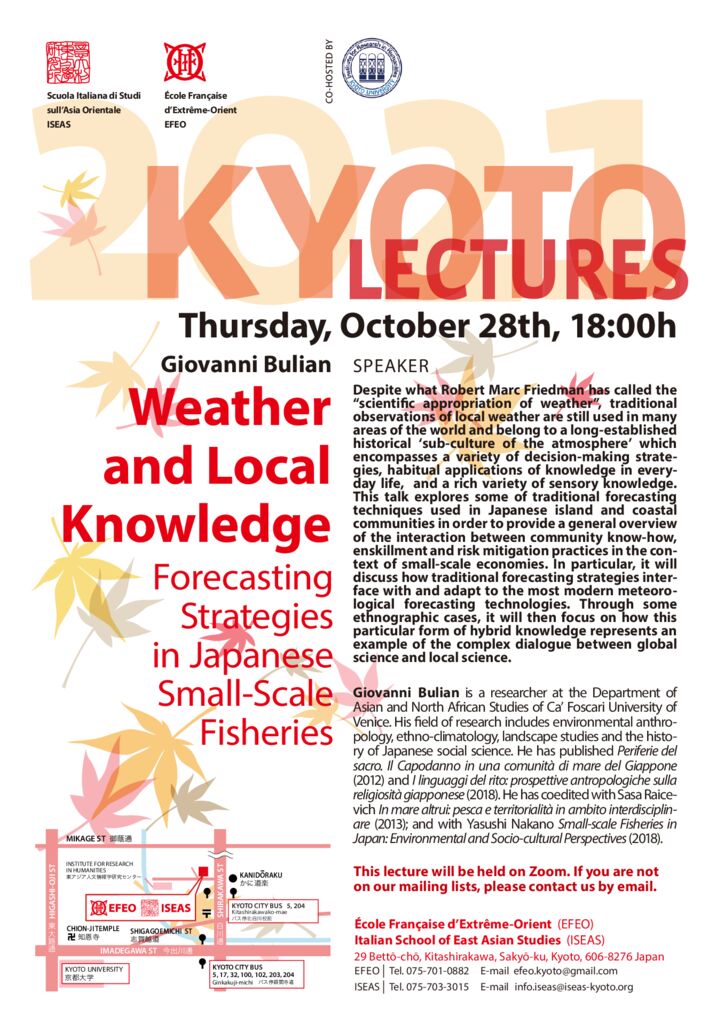Despite what Robert Marc Friedman has called the “scientific appropriation of weather”, traditional observations of local weather are still used in many areas of the world and belong to a long-established historical ‘sub-culture of the atmosphere’ which encompasses a variety of decision-making strategies, habitual applications of knowledge in everyday life, and a rich variety of sensory knowledge. This talk explores some of traditional forecasting techniques used in Japanese island and coastal communities in order to provide a general overview of the interaction between community know-how, enskillment and risk mitigation practices in the context of small-scale economies. In particular, it will discuss how traditional forecasting strategies interface with and adapt to the most modern meteorological forecasting technologies. Through some ethnographic cases, it will then focus on how this particular form of hybrid knowledge represents an example of the complex dialogue between global science and local science.
Giovanni Bulian is a researcher at the Department of Asian and North African Studies of Ca’ Foscari University of Venice. His field of research includes environmental anthropology, ethno-climatology, landscape studies and the history of Japanese social science. He has published Periferie del sacro. Il Capodanno in una comunità di mare del Giappone (2012) and I linguaggi del rito: prospettive antropologiche sulla religiosità giapponese (2018). He has coedited with Sasa Raicevich In mare altrui: pesca e territorialità in ambito interdisciplinare (2013); and with Yasushi Nakano Small-scale Fisheries in Japan: Environmental and Socio-cultural Perspectives (2018).
